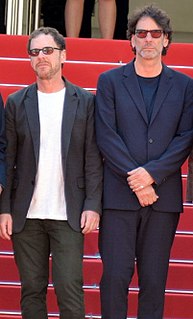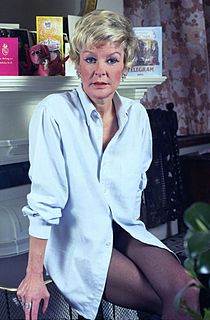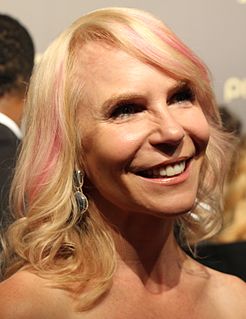A Quote by Josh Fox
With moviemaking, the audience always has to keep asking, 'What happens next?' If you have the wrong piece of music over a scene, people aren't going to get the scene. If you have the wrong camera angle, people aren't going to pay attention. That's as much a part of the process as getting people to talk to you.
Related Quotes
I can ask someone to let me into all aspects of their life for several years, but people have got to have that gift: that courage and that talent for opening their lives to the camera. Being candid is a gift, and that's what the audience responds to. Part of it is me asking, and part of it is just their inherent talent, which is what you are looking for when you make documentaries - people that are really going to let you in on what they are going through.
Get inside her head. Get inside any character's head and ask what they want in this scene. And if you work from the perspective of what they want, there's not going to be any wrong answer. There's going to be some boring answers, but none of them are going to be wrong. As long as she has agency, then you're on the right track.
Dialogue is really aimed at going into the whole thought process and changing the way the thought process occurs collectively. We haven't really paid much attention to thought as a process. We have engaged in thoughts, put we have only paid attention to the content, not to the process. Why does thought require attention? Everything requires attention, really. If we ran machines without paying attention to them, they would break down. Our thought, too, is a process, and it requires attention, otherwise its going to go wrong.
If I were just curious, it would be very hard to say to someone, I want to come to your house and have you talk to me and tell me the story of your life. I mean people are going to say, You're crazy. Plus they're going to keep mighty guarded. But the camera is a kind of license. A lot of people, they want to be paid that much attention and that's a reasonable kind of attention to be paid.
I think as you get older, you realize there's always going to be critics. Critics are going to win every time because they can change their critique based on the stats and their own personal feelings. It's less about proving people wrong, the critics wrong, and it's more about challenging myself to keep this level up.
I've begun to believe more and more that movies are all about transitions, that the key to making good movies is to pay attention to the transition between scenes. And not just how you get from one scene to the next, but where you leave a scene and where you come into a new scene. Those are some of the most important decisions that you make. It can be the difference between a movie that works and a movie that doesn't.
If you feel like you're doing terrible in a scene, that usually means that you're not listening because you're too preoccupied with yourself... you're not listening to your scene partner. If you listen, you're naturally going to get that response that the camera's going to pick up because you just react.
It's when I make a joke about Indian people and then a white person comes up to me and says, "That's wrong. You should not talk about Indian people," and the Indian people are over in the audience like, "I thought that joke was hilarious." That is so weird. Then why are you getting mad? You're burning unnecessary calories. You're getting made for the sake of getting mad. I don't understand it.






































